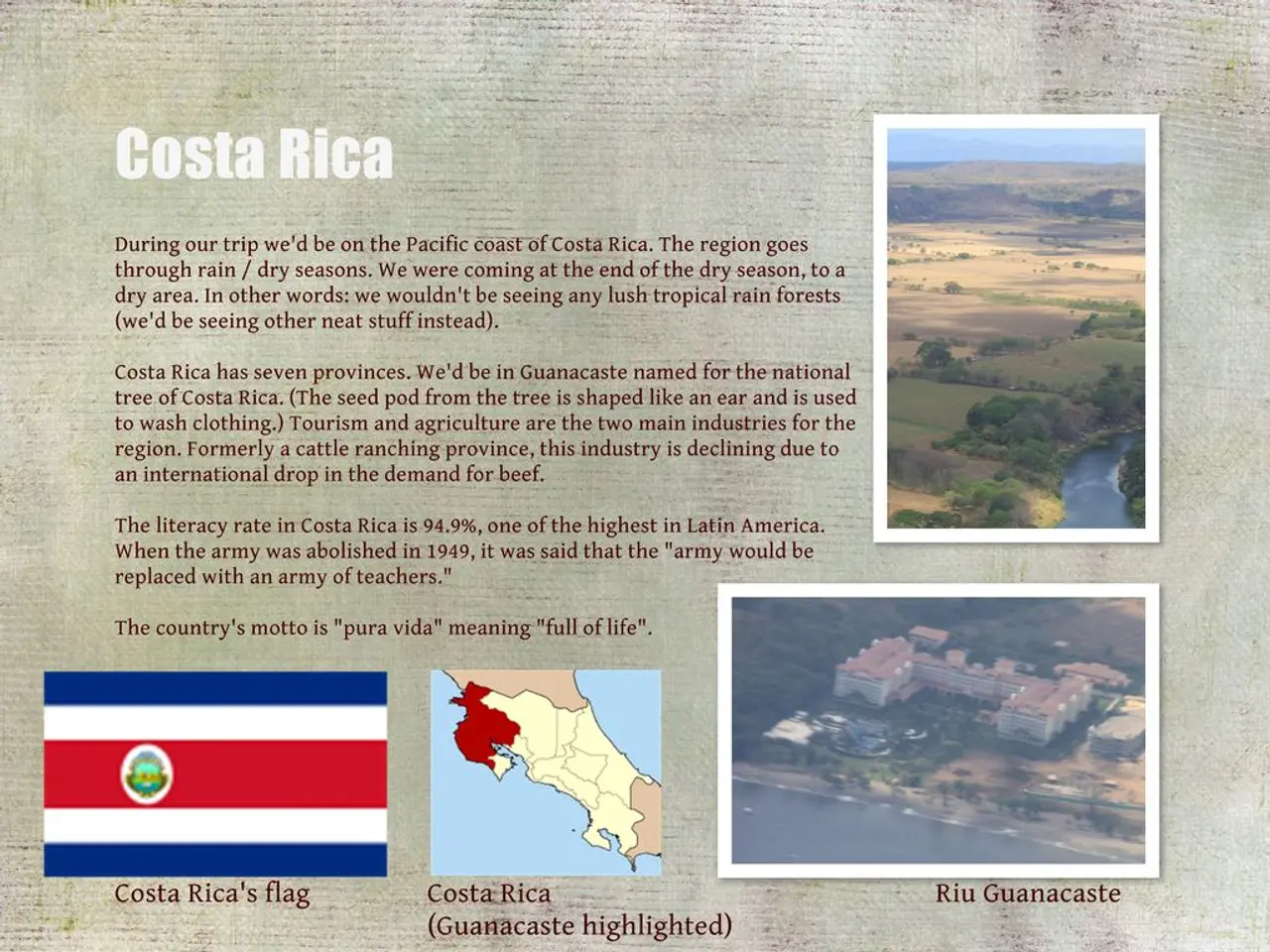Exploring the Culinary Delights at Nicaragua, Central America's Gathering Spot
Discovering the Rich Culinary Delights of Nicaragua
Nicaragua, a hidden gem in Central America, has captured the hearts of many travellers, including first-time visitor Brian, who found it to be the highlight of his trip. One of the most enticing aspects of Nicaragua is its vibrant and flavorful cuisine, which showcases the country's rich cultural heritage.
The bustling local market in Granada offers fresh ingredients for making Caribbean dishes, while the Plaza Colon Hotel, with its colonial architecture and courtyards, captures the historic aspect of the city. For those seeking a deeper dive into Nicaraguan culinary traditions, Careli Tours offers a seven-night and eight-day package for a Nicaraguan culinary tour.
Nicaraguan cuisine is a delightful fusion of indigenous Mesoamerican foods, Spanish colonial influences, and Afro-Caribbean elements. Corn, a staple food, remains fundamental to many dishes and drinks. Popular dishes include Gallo Pinto, the national dish made of fried rice mixed with black beans and spices, commonly eaten at breakfast; Nacatamales, cornmeal dough stuffed with a mix of pork meat, rice, vegetables, and spices, wrapped in plantain leaves and steamed; and Baho (Vaho), a hearty dish consisting of beef, yuca (cassava), and plantains steamed together in banana leaves.
Regional variations abound, with the Caribbean coast offering distinct dishes such as Rondón, a seafood stew with turtle meat, fish, or pork cooked with local spices. Unique drinks include Chicha, made from corn, water, and sugar, and Gaubal, a sweet beverage from the Caribbean region made with cooked green bananas, milk, coconut water, and sugar.
The cultural and historical background of Nicaraguan cuisine is as fascinating as the food itself. The country’s intangible cultural heritage includes El Güegüense, a satirical folk drama combining music, dance, and theatre that symbolically portrays indigenous resistance to colonial rule and is recognized by UNESCO as a Masterpiece of Oral and Intangible Heritage. African roots are evident in the use of ingredients like yuca, coconut milk, and spices, particularly in the Caribbean coastal dishes, connecting Nicaraguan food to broader Afro-Latin American culinary histories.
For those seeking a more hands-on experience, the El Convento Hotel in Leon offers cooking classes where you can learn to prepare Macua, the Nicaraguan national drink, and Quesillo, an on-the-go cheese tortilla wrap. The Menor Basilica in El Viejo, with its original colonial decorations and painted glass windows telling the church's history, provides a perfect backdrop for a culinary adventure.
Mombacho Cloud Forest offers a tour of the Volcano Reserve and unbelievable views from the summit, while the Flor de Caña Rum Distillery, the largest alcohol spirits distillery in the Americas, offers tours and tastings. The University of Central America's Botanical Gardens in Leon, the first garden of its kind in Central America, houses 1,200 plant species and 90 species of birds, making it a must-visit for nature lovers.
Travelling to Central America, including Nicaragua, is less expensive than Europe or North America, making it an affordable destination for food enthusiasts seeking a culinary adventure. Whether you're a seasoned traveller or a first-time visitor, Nicaragua's vibrant cuisine and rich cultural heritage are sure to leave a lasting impression.
Delve deeper into Nicaraguan culinary traditions by joining Careli Tours' seven-night and eight-day Nicaraguan culinary tour. Immerse yourself in the unique drinks like Chicha or Gaubal, popularized on the Caribbean coast.
Experience a symphony of flavors as you savor regional variations such as Rondón, a seafood stew featuring local spices, popular on the Caribbean coast.




